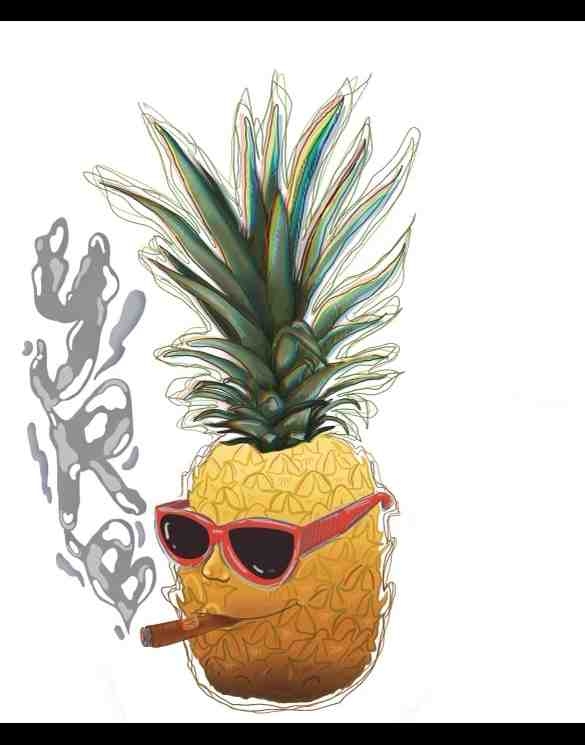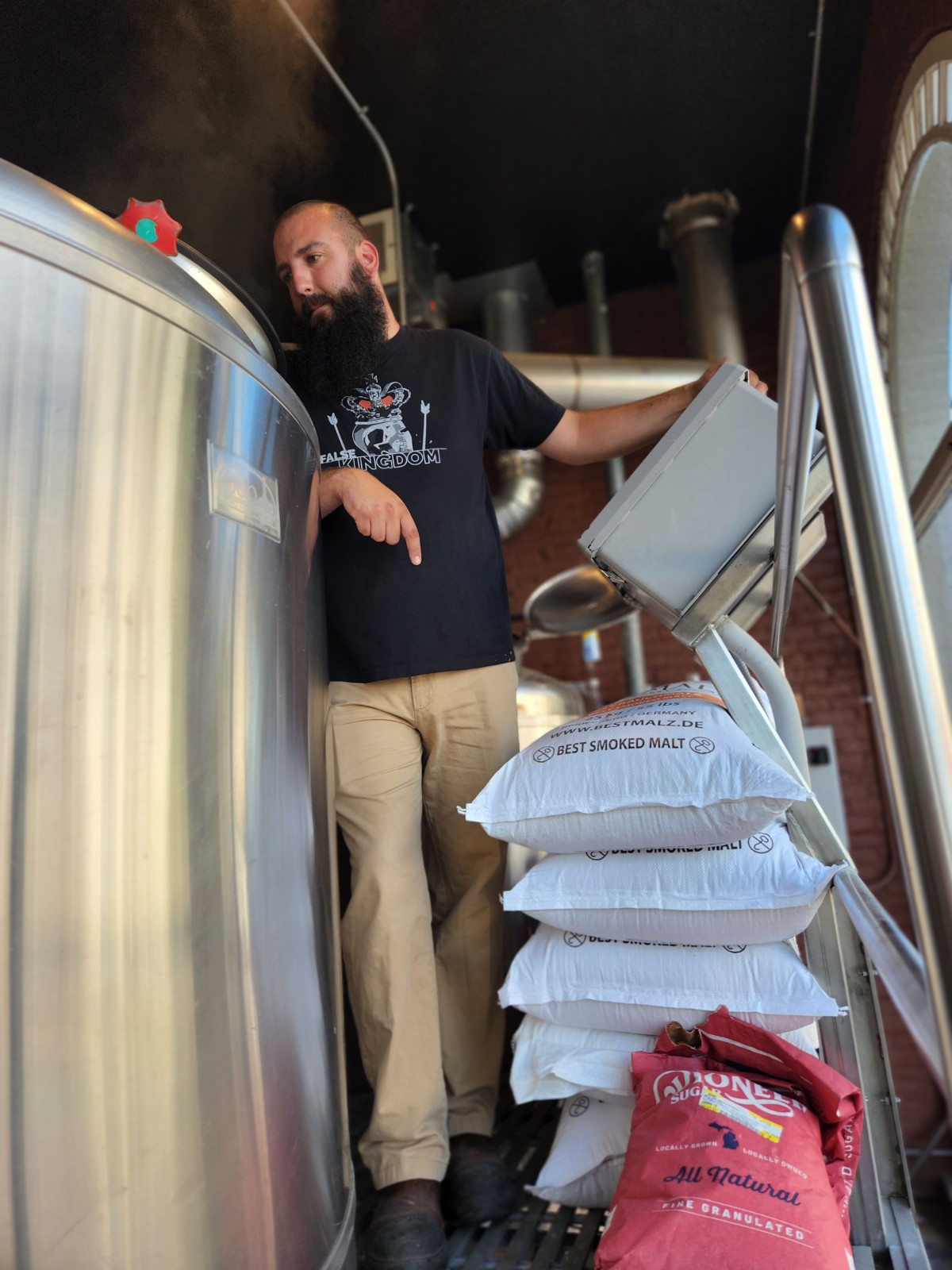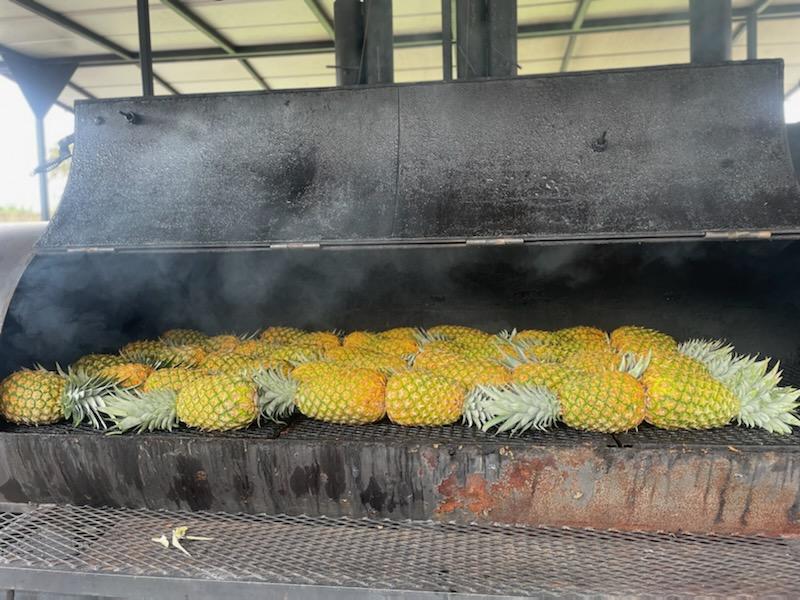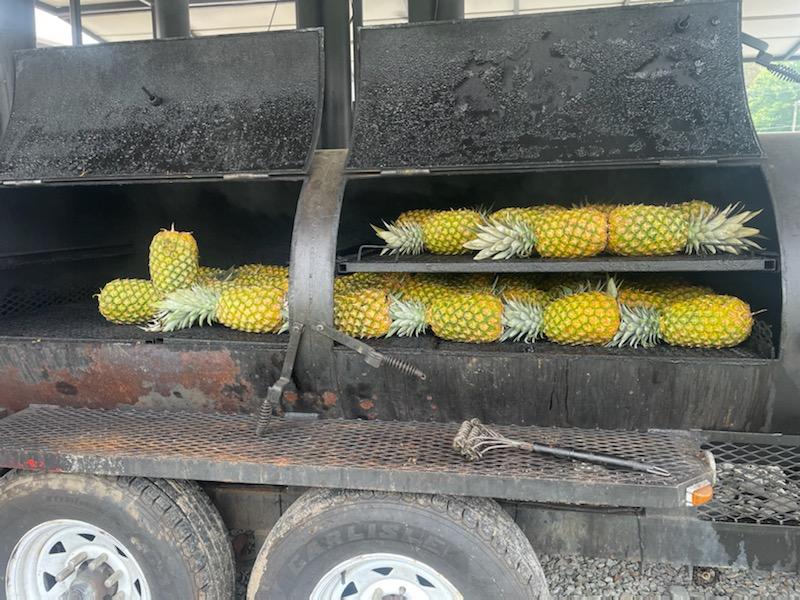Smokey Treat
It was a hot day in June 2019 at Doug Clayton’s Hop Stop farm in Sandy Lake, PA. We gathered in a field under a tent, surrounded by trellis upon trellis of fresh PA-grown hops, the lifeblood of beer. What a great day to enjoy the wares of local breweries at the source of the ingredients. No farms, No beer is what they say, right? It was here I met Nelson DaSilva. Our paths had crossed before at industry meetups in Pittsburgh, but we never really got to hang out and drink each other’s beer. Nelson brought an experimental small batch of a beer he was messing around with. It was a smoked lager conditioned on smoked pineapples. It was incredible. Smokey and sweet with a good balance, it was quite the treat on a hot summer day and went well with the smoked pork being served that day. It was this moment that I got a false impression that Nelson was a great brewer. I would later come to find out he was mediocre at best.
*disclaimer: Nelson is a dear friend of mine and I’m busting his chops. He makes good beer.
Fast forward to the second half of 2020. Nelson and I got a chance to work at the same brewery. We had continually kicked around the idea of making a bigger batch of it but we could never seem to get it past corporate. It was hard to work into a wildly ambitious schedule as this beer is labor-intensive and time consuming. Conditioning beer on fruit takes up precious real estate in a brewery. Most beers spend 48 hours to one week in a tank and this beer requires a month of tank time. To execute this properly, we would additionally need to find somebody to smoke 500 LBS of pineapples. Needless to say, my smoker was undersized.


But here we are in 2022. Nelson and I are on to bigger and better things. Nelson has taken on a role at Yough River Brewing in Connellsville, PA. I took on the role at Fat Chad’s Brewery here in Titusville, PA. My configuration of equipment lends itself well to creating high quality lager beers. When I approached Nelson about finally making the smoked pineapple lager as a large-scale collaborative beer, he revealed to me that beer idea was originally a Lavery beer, and with their blessing, he put his own twist on it. 113 S Franklin St was previously Lavery Brewing’s Lager Haus satellite location before the pandemic put a wrench in the spokes for them. We both immediately wanted to bring them in on it. Lavery was down and it looked like this collaboration might actually happen. This made all the sense in the world, and it was a chance to redeem myself for all the times I busted their chops about having to come in to finish what they started.
Despite high hopes, Lavery unfortunately never got to brew in Titusville. They were weeks away when the pandemic hit and that put an end to things for Lavery at this location. I had the opportunity to run with their torch as the brewer of Fat Chad’s. They did a lot of work to bring this place back to life and I’m very grateful for it. I’m glad they could be involved because they make great beer, much better than Nelson’s.
What is a smoked pineapple lager? Well, it starts with a traditional German beer called a Rauschbier. Rausch means “smoke” in German and bier means “beer”. Easy enough, right? But with all things beer, there is some history behind it. Firstly, It’s a bottom-fermenting lager. Like most of Fat Chad’s lagers, these styles were traditionally brewed in caves at cellar temperature (roughly 55 degrees F). But there are some interesting facts about this particular style.
Before modern kilning techniques, folks were drying out their malted barley over an open flame because that was their only heat source. Before modern kilning techniques (indirect heating), all beers tasted like smoke. When these new techniques to drying out barley that didn’t impart a smokey flavor started coming out, the popularity of the new beers grew like crazy, but a few breweries decided to keep making the smokey version that their customers had loved for years.
Here in the USA, we like to combine old world techniques with new world techniques. We are not satisfied with taking the torch and running with it. We prefer to take the torch, jump in something with an engine, and smoke everybody to the finish line. In the spirit of this, we took 100 whole pineapples , smoked them over Oak and Cherry smoke, cut them up and pureed them by hand. We threw this nontraditional stockpile of fruit into a very traditional beer and brought you something special and uniquely American.
What is a smoked pineapple lager? Well, it starts with a traditional German beer called a Rauschbier. Rausch means “smoke” in German and bier means “beer”. Easy enough, right? But with all things beer, there is some history behind it. Firstly, It’s a bottom-fermenting lager. Like most of Fat Chad’s lagers, these styles were traditionally brewed in caves at cellar temperature (roughly 55 degrees F). But there are some interesting facts about this particular style.
Before modern kilning techniques, folks were drying out their malted barley over an open flame because that was their only heat source. Before modern kilning techniques (indirect heating), all beers tasted like smoke. When these new techniques to drying out barley that didn’t impart a smokey flavor started coming out, the popularity of the new beers grew like crazy, but a few breweries decided to keep making the smokey version that their customers had loved for years.
Here in the USA, we like to combine old world techniques with new world techniques. We are not satisfied with taking the torch and running with it. We prefer to take the torch, jump in something with an engine, and smoke everybody to the finish line. In the spirit of this, we took 100 whole pineapples , smoked them over Oak and Cherry smoke, cut them up and pureed them by hand. We threw this nontraditional stockpile of fruit into a very traditional beer and brought you something special and uniquely American.

The base beer is brewed and fermented in very traditional ways and right as the finish line is in sight, we throw a begeezus amount of smoked pineapple in. We got Doss Boys BBQ, who parks at Yough River Brewing frequently as the food truck to smoke them for us. The result is a smokey, sweet treat. The result of a culmination of knowledge of three breweries that work well together, and 4 heads on one beer idea coming together to create something better than the sum of its parts. We hope you enjoy it as much as we do. Cheers. Prost. Slainte.


Here is What Nelson of Yough River Brewing had to say about the experience:
“Lavery Brewing is a place I’ve learned a lot and worked a little at! Jason Lavery, Logan Hartpence and the gifted up and comer Kevin Klino are a tremendous resource to Yough River Brewing Co. As can easily be seen by the amount of guest taps we’ve had of there’s.
Crabby has been a great friend of mine for years. We even teamed up and worked together briefly at Riverside Brewing Co.! I consider him one of my closest friends and even though he has subpar brewing skills we all enjoy his company enough that he continues to find people to pay him to brew! JK Lol!”
